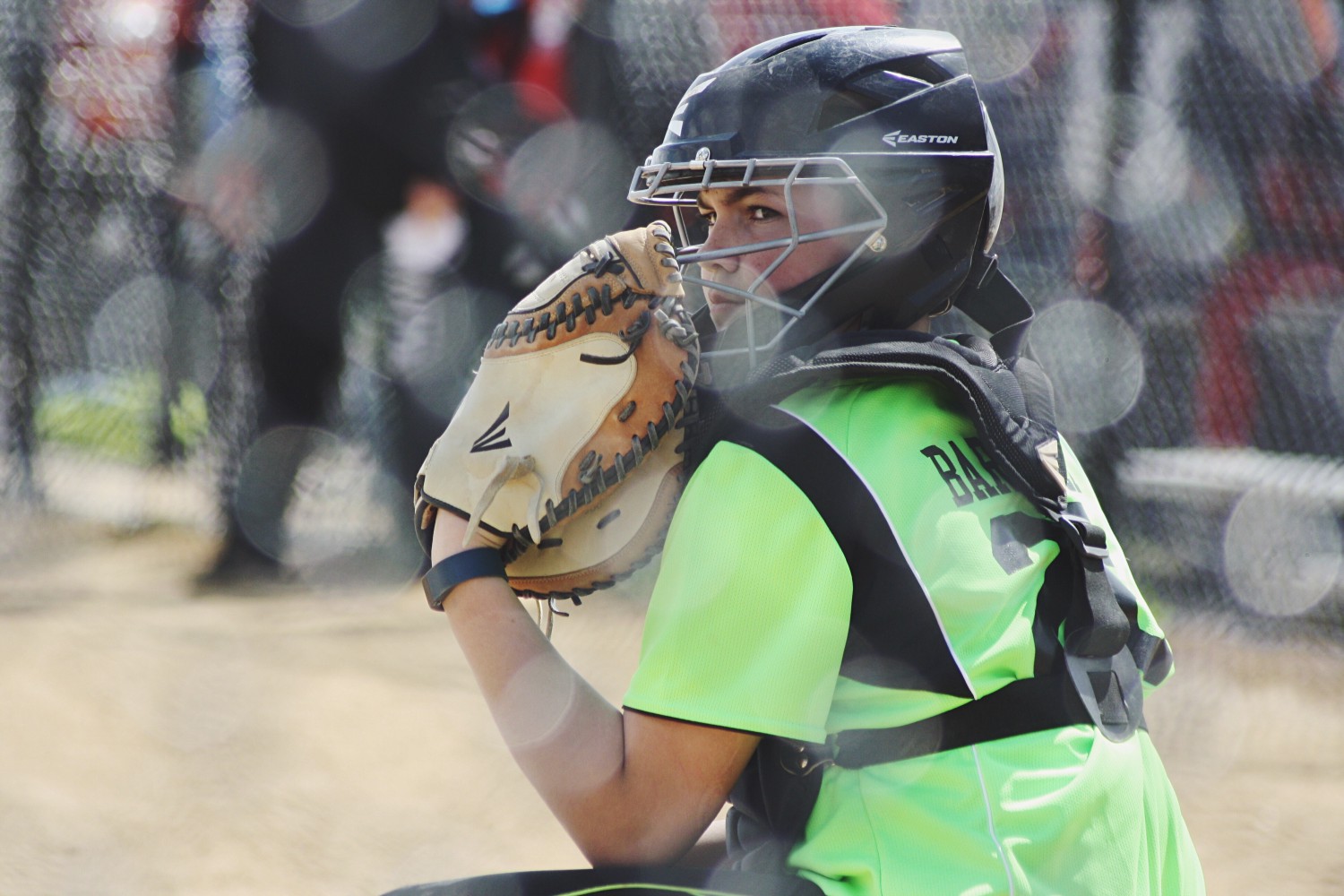When I was growing up, my family never watched professional sports on T.V. Scratch that. We had one annual Super Bowl party. The men would go down to the basement, flip on the NFL channel, and the women would congregate upstairs. When I was younger, I would tiptoe down to the basement and ask one hundred questions about the players on the T.V before I was quickly ushered back upstairs. This was guy time. This was guy talk. This was not for me.
And yet, I was always involved in sports. I did gymnastics, played select soccer, participated in lacrosse and badminton, and ran cross country and track. Still, in my mind, watching and discussing professional sports — especially the more popular ones like basketball and football — was for boys.
It was only in my junior year of high school that I first encountered the work of female sports journalists. I was enrolled in a journalism program with my local paper and I jumped at the opportunity to interview Olympic swimmer Michael Phelps. I still remember standing shoulder-to-shoulder with reporters from USA Today and Sports Illustrated — jockeying for a position to ask Phelps about his “last” Olympics. I recall looking around and seeing a number of women doing exactly what I thought was a male-only profession.
However, it was not until college that I believed that this was something that I could do. When I found myself immersed in a NBA podcast in my senior year, I began to understand what I had been missing. At first, I could not understand who or what the hosts were discussing. Rather, it was the way they told stories about the players that intrigued me. I learned that Kevin Durant was raised by a single mother. I learned that DeMarcus Cousins was not to be tested. I learned that Joel Embiid gained weight from drinking too many Shirley Temples while he was injured. The stories differentiated the players, but it was hearing the terms — 3-pointer, clutch player, screen, pick-and-roll — that helped build my sports knowledge.
Finally, I began watching the games on my own and memorizing the players by face. At first, Steph Curry was Tomato Head on account of his very circular head shape. Anthony Davis was Eyebrows — this should be self-explanatory. Jeremy Butler and Trey Kerby were French Fry and The Weekend, respectively, because of their haircuts. Dwayne Wade — Gabriel Union’s husband.
Sports became a conversation starter, a hobby, a piece of my daily pop culture, and a part of my job search. I realized discussing sports was something I was excited about and I wanted to contribute to the conversation. I still have huge gaps in my knowledge and I am intimidated by the amount of information I still do not know.
I realize now that this was not the same for every girl. In an interview with long-time sports journalist Meri-Jo Borzilleri, she recalled that some of her favorite memories growing up were watching ESPN with her family, and it was these moments that led to her career. However, Borzilleri noted that harassment, hate mail, and gendered slurs came with the job and it might be even worse for women now entering the field.
“The young women that are in it now have it far tougher as far as online commenting about rape and violence,” she said. “The reactions to a story online and anonymous commenting has reached a whole new level of ugliness and scariness. People getting attacked for being female — for writing a story about sports — is so commonplace.”
It seems that even in 2017, there is still this notion that women do not belong in a discussion about sports. For example, Brooke Pryor, a sports journalist at North State Journal, started a media storm when she asked UNC’s football coach, Larry Fedora, about the maturity of one of his players. Fedora replied, “For a woman, you don’t realize it, there’s a huge growing process for a young man from 17 to 21, 22 years old.” It is moments like this that support the narrative that women do not belong in the conversation — and contribute to girls like me growing up thinking that their passion is a male-only career.
As I watch the Philadelphia 76’ers, I am still just coming to understand professional sports — especially their respective histories and star athletes. I dream of having the sports knowledge to offer historical insights and thoughtful critiques of players and coaches. Each new term I memorize is a small success and each new player I can recall is a little victory. As Joel Embiid smashes another bucket, I can hear the Philly fans chanting the words of the Sixer’s ex-manager Sam Hinkey — trust the process, trust the process — and faithfully, I do.
Sources:
http://www.brookepryor.com/reporting/2016/7/21/what-happened-when-i-became-the-story
http://www.tidesport.org/complete-rgrc.html
http://espn.go.com/espnw/news-commentary/article/9028045/espnw-women-sports-analysts-yes-can
Originally published at medium.com


